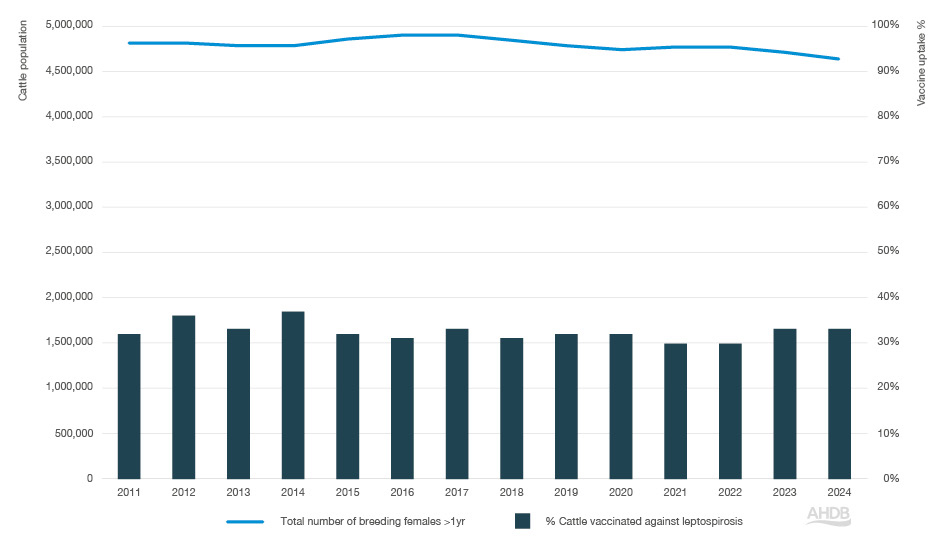- Home
- Knowledge library
- Leptospirosis vaccines in cattle
Leptospirosis vaccines in cattle
Leptospirosis is a zoonotic disease caused by bacteria of the Leptospira genus.
Leptospirosis is a common infection in dairy and beef herds and causes infertility, abortion and poor milk yield.
Infection arises from contact with infected urine or the products of abortion.
Two vaccines for leptospirosis were marketed in the UK:
- Leptavoid® -H contains inactivated Leptospira interrogans serovar Hardjo
- Spirovac contains inactivated Leptospira borgpetersenii serovar Hardjo type hardjobovis
Assumptions
Numerator
The number of doses administered has been calculated by multiplying the number of packs sold by the number of doses per pack.
Denominator
It was assumed that only female breeding animals should be vaccinated and that the at-risk population was all female cattle between one and two years of age, plus the total female breeding herd over two years of age.
Common industry practice is to give breeding heifers a primary course of vaccination (two doses) before first service, between the ages of one and two years, and to give all breeding females over two years of age a single annual booster vaccination.
To take this into account, the denominator was the number of breeding females over two years of age, plus the number of breeding heifers between one and two years of age multiplied by two.
Vaccination uptake
Leptospirosis vaccine uptake has been relatively stable between 2011 and 2024, with around one in three of all breeding cattle over the age of one estimated to be vaccinated.
There were supply chain issues for Leptospira vaccines, which may explain why uptake decreased to 30% in 2021 and 2022.
Estimated uptake has since increased to 33% in 2024.
Figure 1. Percentage of cattle vaccinated against leptospirosis


